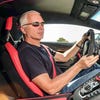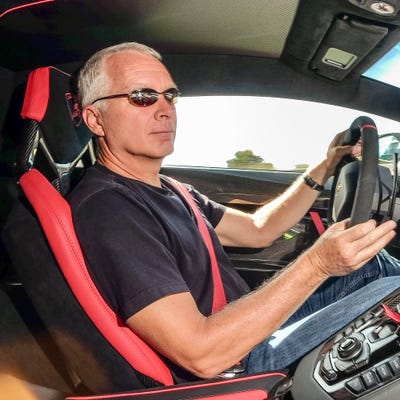Honda and Sony’s Afeela EV Joint Venture Gets Serious
Afeela is staffing up and expanding its all-EV product line.
.gif?width=850&auto=webp&quality=95&format=jpg&disable=upscale)
At a Glance
- Afeela is adding a compact sedan and SUV to the product line
- The company is doubling its engineering staff
- Deliveries are planned for 2026
When the Sony Honda Mobility joint venture announced its plans for the Afeela EV brand last year, details were still a bit hazy, but the partners’ plans are coming into clearer focus thanks to an update this year and a new report from Nikkei.
The big news, according to the Japanese news service’s report, is that Afeela will expand from the single large sedan originally announced to add a compact sedan and an SUV. All three models will be built on the same platform, which will be shared with Honda’s in-house EV family.
To support this, Afeela is hiring mid-career engineers intending to double its workforce to about 500 employees, Nikkei reports.
The previously announced Afeela sedan will be a premium product with a starting price of around $66,000, so the compact models will let Afeela compete for mainstream customers with smaller budgets.
The sedan is a dual-motor vehicle with all-wheel drive in the model of the Tesla Model S. The front and rear motors are 245 horsepower each and employ permanent magnets, which will leave us watching for Afeela’s plans to minimize the amount of nickel and cobalt needed and how they will source those materials reliably and ethically.
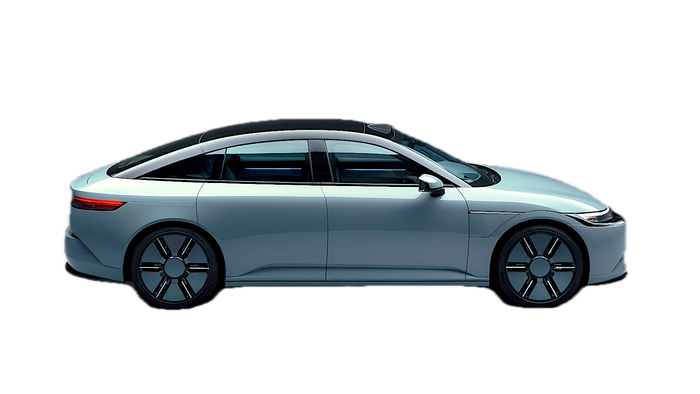
Afeela's 2024 prototype. AFEELA
At 118.1 inches, the Afeela sedan’s wheelbase stretches 1.6 inches longer than that of the Model S though its 193.5-inch length is 2.2 inches shorter and its 74.8-inch width is 3.5 inches narrower.
Afeela tells us that the car carries a 91-kilowatt-hour lithium-ion battery pack that charges at a maximum of 150 kilowatts for DC fast charging. The onboard charger accepts power at the rate of 11 kW from Level 2 AC chargers. The company announced the intention to start taking orders for the cars in 2025 for delivery in 2026, so it remains to be seen whether these charging specs remain acceptable in the EV market of 2026 or whether Afeela will increase the fast-charging speed.
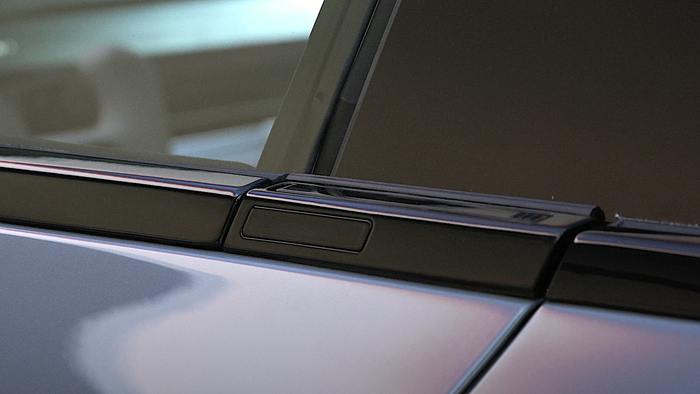
After hearing that customers weren't excited by the prospect of only getting into the car when the doors automatically open, Afeela added door release buttons to the 2024 prototype. AFEELA
Since announcing these basic specifications, Afeela has already made adjustments to the sedan, which it showed on a car it describes as a prototype. Compared to the original car shown in 2023, this new prototype has added door release buttons that are subtly incorporated atop the doors. The original plan of relying exclusively on the car’s ability to automatically open its doors on approach by drivers met with predictable pushback in clinics the company did with consumers.
The original concept car’s headlights also encountered harsh reality, in the form of government headlight requirements, so the prototype’s lights have been revised compared to those originally shown.
Between those headlights, Afeela is introducing what it calls a “media bar” where there would be a grille on a combustion-powered vehicle. This is a display the car will use to communicate with the driver, showing things like the car’s charging state when plugged in, wishing the driver a happy birthday, or just serving as a place for “stickers” the way a person can choose their own lock screen or background photos for their phone.
.gif?width=700&auto=webp&quality=80&disable=upscale)
Afeela's media bar provides information to people outside the car. AFEELA
Inside, the Afeela sedan will communicate with the driver through what it calls a “conversational personal agent.” This AI-powered voice system will “deepen the relationship between users and mobility,” the company said, without elaborating on its potential capabilities. If they aren’t talking with actor William Daniels, who voiced the antagonistic KITT car’s computer in the television series Knight Rider, they are missing an obvious opportunity for this car’s voice.
An area of customization for Afeela drivers will be the sound produced inside the car simulating noise from its electric motors. While BMW has curated sounds created by composer Hans Zimmer specifically for its cars, Afeela will provide drivers with menu options so they can choose the sound rather than simply turning it on or off.
Afeela is promising the car will offer Level 3 autonomous driving in certain situations, with Level 2 driving in other circumstances. Its system will improve on existing driver assistance systems by applying a vision transformer AI for perception and machine learning for path planning.
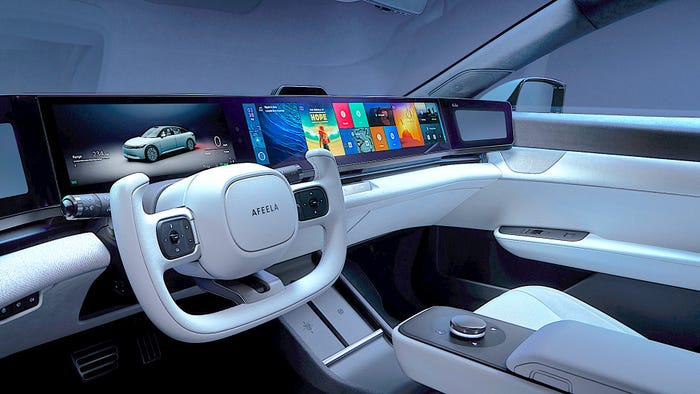
The Afeela's dashboard shows small screens on its outer edges that will probably be camera mirrors, making the prototype's conventional door-mounted mirrors unnecessary. AFEELA
Looking through the car’s cameras, Afeela’s vision transformer has higher accuracy in object detection than today’s convolutional neural network systems, promises the company. This advantage is especially beneficial in challenging situations, such as driving in the dark and in the rain, as well as for spotting back-lit pedestrians who could be overlooked in the glare. We’ve seen the need from testing by AAA and the Insurance Institute for Highway Safety for improvement in these cases, where today’s systems perform poorly.
With promises like this, it is obvious that the growing Afeela engineering staff has its work cut out for it.
About the Author(s)
You May Also Like
